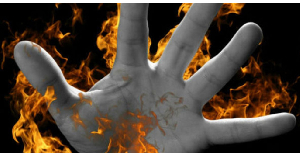…$ to hit GHS 6 by 2016?
From the Association of Ghana Industries (AGI) to the Trades Union Congress (TUC) and down to the ordinary Ghanaian, the consensus is that the national economy is currently in a tailspin and has plunged into its lowest ebb since the year 2000 and to some extent 2008 also. As usual, external shocks and election-related spending in 2012 accounted for the imbalances as in all those years.
The remedy to the current grim economic situation is what seems to have eluded everybody at least for now, an aberration that should not have occurred in a country full of economic and financial experts.
The ruling National Democratic Congress (NDC) itself is blessed with able hands, who not long ago had demonstrated economic and financial finesse that saw arguably the quickest post-election economic turn-around. This happened in 2009 after the retreating New Patriotic Party (NPP) government had left a depreciating currency, spiraling inflation, rising public debt, deteriorating balance of payment (BOP), depleted national reserves and high and rising interest rates.
This current macro-economic crisis pales into insignificance compared to the mess the Kufuor-led NPP government has bequeathed to the then Mills-Mahama NDC government in 2008, a situation that necessitated a quick bail-out from the International Monetary Fund (IMF). The bail-out resulted in the country getting the needed balance of payment support which created some fiscal space for the economy to take off.
After the appointment of the first batch of ministers in February 2009, and coming into face-to-face with the then economic challenges, the Mills-Mahama government used a record three months to turn the then situation around, leading to one of the spectacular economic performances of our time.
The Mills-Mahama historical economic turnaround happened between March and June, 2009, with all the macro-economic indicators responding positively to the policies that were applied to correct the slippages in the economic fundamentals.
A major macro-indicator such as inflation started decelerating from June 2009 leading to one of the most sustained and longest periods of single digit inflation in the nation’s post-independence economic history.
After depreciating continuously for almost two years, Cedi, the local currency also started stabilizing in the middle of 2009 leading to a long period of Cedi stability in the nation’s history.
Indeed, since the redenomination of the currency in the middle of 2007, there had been massive depreciation until the corrective measures implemented by the Mills-Mahama government started bearing fruits in June-July 2009, thus turning the situation around.
Overall, going by the available data, the years 2010 and 2011 will go down in history as among the best ever in terms of economic management and but for the last quarter’s election-related expenditures, 2012 would have also been an excellent year.
For instance, government in 2011 recorded a budget deficit of 4 per cent of GDP while the economy grew by a whopping 15 per cent, one of the highest in the world in that year.
However, with the election-related expenditure and bloated public sector wages especially in the last quarter of 2012, the economy experienced fiscal pressures leading to a fiscal slippage with fiscal deficit in 2012 inching to about 11.8 per cent of GDP higher than the target of 6.7 per cent of GDP.
In 2013, despite punishing austere measures, there was no any significant reduction in the budget deficit. The year 2013 ended with a budget deficit of 10.2 per cent of GDP. This is higher than the target of 9 per cent of GDP.
The current account deficit also shows some deterioration ending at 12.3 per cent of GDP in 2013 higher than even the 2012 figure, which was 12.1 per cent of GDP.
Thus, for the first time, Ghana is making economic history in a negative way by recording double-digit fiscal and current account deficits in two years consecutively. That is 2012 and 2013.
Given the way the economic indicators are behaving, many economic forecasters familiar with the Ghanaian economy have predicted that the country is likely to register another double-digit deficit in the 2014 fiscal year.
The 8-months election petition at the Supreme Court challenging the 2012 presidential election results, coupled with huge expenditures on public sector wages and salaries, interest payment on public debt and low revenue also exacerbated the situation leading to government’s inability to turn the economy around in 2013. In 2013, and so far the first half of 2014, the behavior of all the macro-economic indicators are reminiscent of the year 2000.
Inflation has gone beyond the single digit zone and is currently at 14.5 per cent and there is no sign of decelerating after government announced the implementation of the automatic adjustment policy on petroleum prices leading to frequent increases in petroleum prices. Subsidies on utilities have also been struck out. Looking at the spate of the deterioration, it has been predicted government was unlikely to meet its inflation target of 9.5 per cent this year.
Government is currently borrowing at over 23 per cent. The T-Bill rate is currently at 23.6 per cent and the three year bond is going for around 25 per cent. This virtually closed the fiscal space available for government to spend, as more money is needed to pay for government debt.
This phenomenon is partly to blame for the ballooning national debt as the costs of borrowing add to the stock of public debt any time government goes to the market and borrows.
Again, with these interest rates on government instruments, government has pushed-out the private businesses out of the money market, a situation commonly known as crowding out.
The increases in interest rate do not only symbolize the loss of confidence in the national economy but it also has a reverberating effect across all the facet of the macro-economy. It affects inflation, fiscal and current account deficits, debt levels, the currency, reserves and so forth.
The economic situation is getting out of hand now with the Cedi experiencing its worst performance since 2000 when it was severely buffeted by exogenous factors.
Many economic and financial analysts have forecast that the currency may hit GHS6 per Dollar by 2016 when the country is going for another election from its current GHc3 per Dollar. Should that prediction come true, the ruling party in the best case scenario would lose the elections, and in the worst case, there could be social unrest even before, during or after the elections.
Perhaps, to forestall the occurrence of such gloomy situation, the government has toned down on the rhetoric and is today assembling a coterie of experts on the economy across the divide to deliberate on the way forward in the much-touted Akosombo Forum.
While Ghanaians are awaiting the outcome of the deliberations at the Akosombo summit, it is instructive to note that what the Ghanaian economy needs now is an immediate rescue measure from the IMF to cushion the people against further destabilization of the macro-environment.
The mere presence of the IMF and its program alone for the country and the economy would provide the needed confidence to assuage the current jitters local and international investors have on the management of the economy. Fears of the nation eventually becoming bankrupt would be allayed because they would get the needed guarantee that they would not lose their investment especially the holders of the nation’s long term bonds such as the 3-year bond.
Again, the mere implementation of an IMF-supported program would provide international credibility to the raft of measures including the so-called home-grown policies that the government said it has developed. The international financial and business community would at least give their attention to what we are doing as a nation to take our destiny in our hands.
Economic experts argued that government needs to do away with the ostrich mentality and the ideological facade and face the bull by the horn to enter into a program with the IMF and get some emergency balance of payment support to stabilize the currency and provide the needed buffer against further depreciation which continues to erode the purchasing power of the poor and the fixed-income earner.
The Al-Hajj believes that at this critical juncture, the economy needs an immediate IMF program to support and provide credibility to the on-going fiscal consolidation measures, before we can talk about any home-grown policy direction.
Whatever economic model or blue print that the Akosombo summit would come out with can be implemented after the economy has been stabilized and that can only happened at this stage with an IMF-supported program.
Currently, the Ghanaian economy is shackled with public sector worker’s compensation and interest payment on government debt.
For 2014, compensation is estimated at about GHS10.6 bn. This represents 10 per cent of total GDP, including oil and is also 31.5 of total estimated revenue and grant in 2014. Interest payment on its part is estimated to hit GHS6.1bn in 2014, representing 6.4 per cent of GDP and 18.4 per cent of total revenue and grant. The two items are the two biggest items in the government expenditure and have taken over the available fiscal space for policy maneuverability
So far, managers of the national economy seem to have been having serious challenges on how to handle the situation and the only quick solution at this juncture is an IMF-supported program.
Business News of Tuesday, 13 May 2014
Source: Al-Hajj












